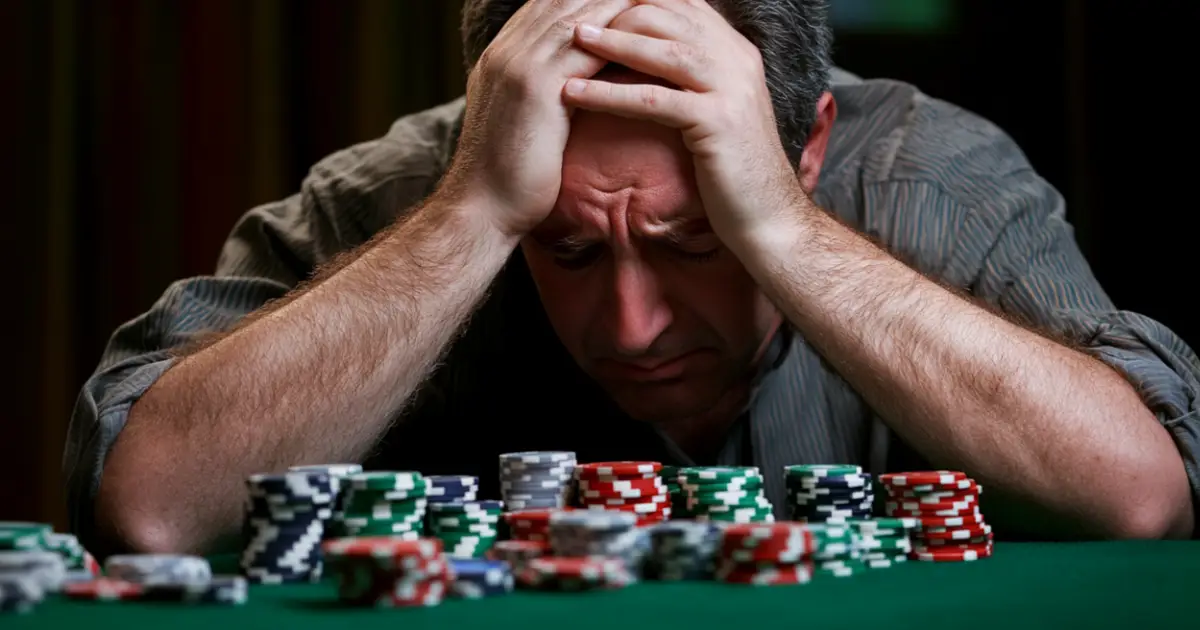The UKGC is digging deeper into the link between gambling and suicidal thoughts
In recent days, the UK Gambling Commission (UKGC), the UK’s gaming regulator, has shaken up the industry with its announcement that it is launching an in-depth investigation into the link between gambling and suicide. To what extent can pathological gambling lead to suicidal thoughts and even acts?
A bold plan to fill obvious gaps
The UKGC recently unveiled a revised research roadmap, which includes investigating the link between gambling products, gambler behaviour and the most serious outcomes, including suicide. The project aims to highlight vulnerable populations (such as ethnic minorities, hard-to-reach audiences and those already at risk) and to track gambling behaviour until it becomes harmful.
What is innovative is the ambition to produce reliable national data on gambling-related suicides: suicidal thoughts, actual attempts or deaths. The regulator itself notes that there are still major gaps in our understanding of how specific events or circumstances lead to gambling-related suicide. The Commission also intends to conduct the first psychological autopsy study of gambling-related suicides, to examine the behavioural, contextual and environmental factors surrounding these tragedies.
This effort is part of a public health approach: rather than seeing suicidal acts as isolated cases, the UKGC wants to place them within a continuum of gambling-related harm.
What do we already know? Associations reported but limited evidence
The regulator’s announcement calls for a review of existing knowledge. In 2021, a joint study by the regulator and the GambleAware foundation showed that individuals identified as problem gamblers were more likely than the rest of the population to have thoughts of suicide or to have attempted suicide: 19% of them said they had thought about suicide in the year, compared with 4%, and 5% had attempted suicide, compared with 0.6%.
However, several experts believe that the figures often quoted (between 117 and 496 gambling-related suicides each year in the UK) are based on questionable methodologies. These estimates are based on extrapolation from a Swedish study of hospitalised patients, applied to UK data, an approach deemed imprecise by some analysts. For example, the victims hospitalised often had multiple pathologies (addictions, mental or somatic disorders), which makes it difficult to isolate the real impact of gambling on the suicidal phenomenon.
In addition, the official English statistics on death certificates mentioning gambling remain very low (21 cases recorded between 2001 and 2016), but they are widely considered to be underestimates, as gambling is not systematically recorded on these certificates. In short, the link between gambling and suicide is recognised as plausible, but without precision or consensus on the actual magnitude.
Towards better targeted research: calls for projects
To fill these gaps, a UK funding programme is already up and running. The Gambling-Related Suicide Research Programme has awarded grants to a number of projects, including:
- a psychological autopsy combining interviews with family and friends, banking data, medical history and gambling records;
- a longitudinal study of sports bettors, examining how associations between gambling and suicidal ideation change over time;
- research into care pathways and health data correlated with problem gambling, in order to map out risk trajectories.
The aim of these projects is to go beyond simple correlations and gain a better understanding of the mechanisms involved: debts, psychological pressure, psychiatric co-morbidities, impact on loved ones and life circumstances. The idea is to guide more effective prevention policies and more targeted regulatory strategies.
Methodological challenges and ethical obstacles
A study on this subject is not without its difficulties. Objectively diagnosing a suicide as gambling-related is tricky: suicide is rarely due to a single factor. Gambling can be one of several triggers (depression, isolation, financial loss, associated disorders). The challenge will be to manage confounding factors, identify temporal sequences (does gambling precede suicide, or does it worsen after a crisis?), and collect reliable data in a context that respects family and friends and medical confidentiality.
Moreover, the samples will be small: each suicide is rare, and the participation of relatives or medical institutions can be sensitive. The Commission will have to ensure that interviews and banking or medical data are used with consent, anonymised and within a strict ethical framework.
A path towards greater transparency
The UKGC’s initiative marks a breakthrough: for the first time, the regulator has agreed to tackle this taboo subject with ambition and rigour. But there is still a long way to go. The development of robust methodologies, access to data and the support of stakeholders (hospitals, operators, researchers, families) will be decisive. If the commission succeeds, it could serve as an international model for other countries faced with the invisible suffering associated with gambling.It is now up to researchers, public authorities and civil society to take this debate beyond the betting platforms, to give victims back their rightful place and prevent further tragedies.


